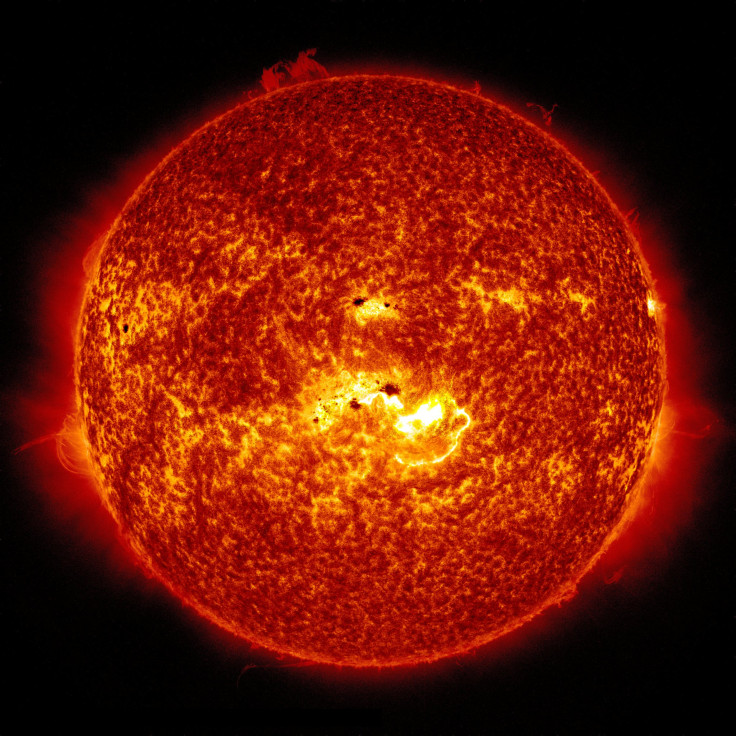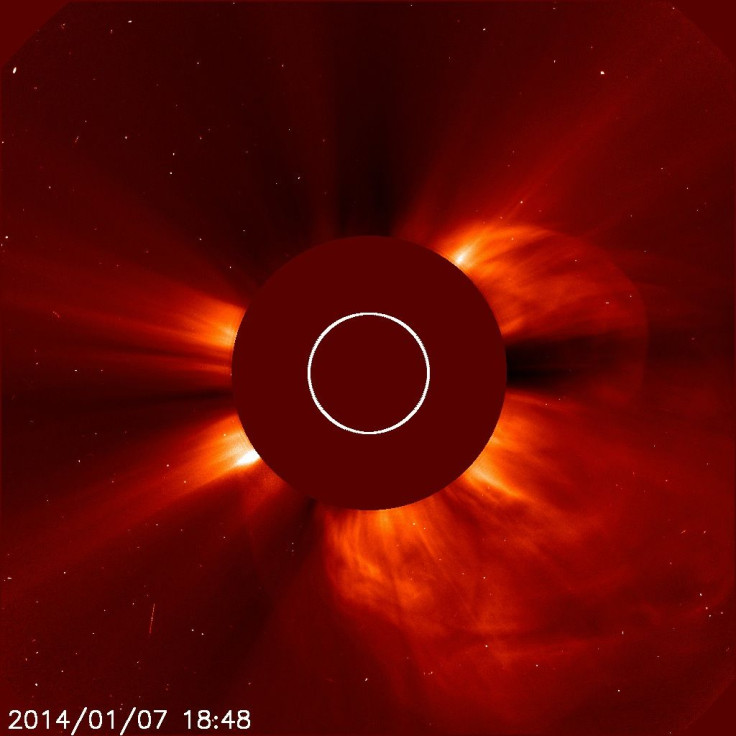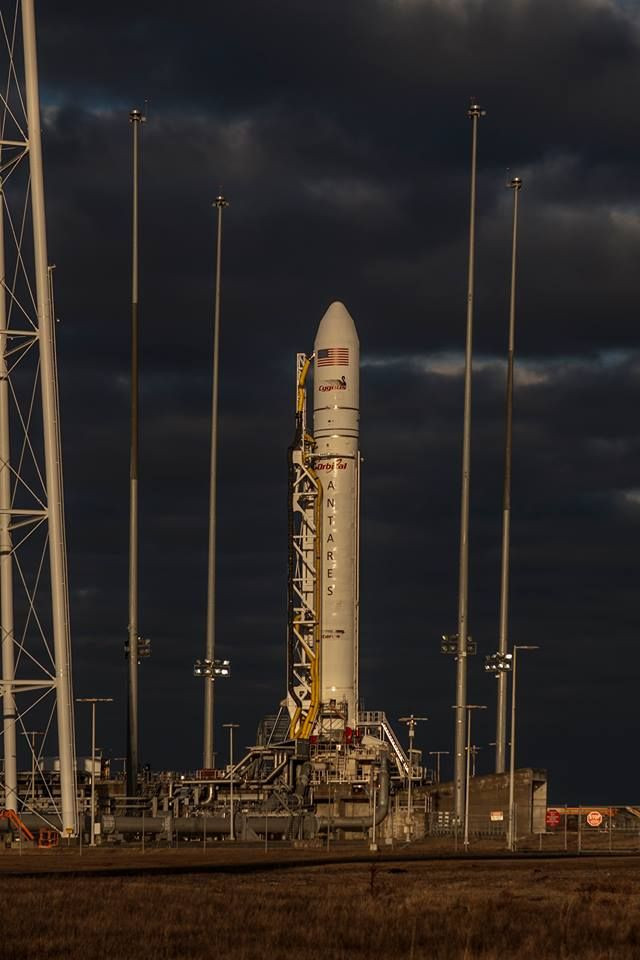Sun’s First X-Class Solar Flare Of 2014 Leads To Cancellation Of Orbital Sciences’ ISS Launch

The first X-class solar flare of 2014 occurred on Tuesday, reports NASA. The solar activity came soon after the first sunspot of 2014 was observed by NASA’s Solar Dynamics Observatory.
The X-class solar flare kicked up enough solar radiation to cancel Orbital Sciences’ launch scheduled for Wednesday. Orbital Sciences was set for the International Space Station Commercial Resupply Services Mission, ORB-1, but has, tentatively, moved the launch date to Thursday.

Orbital Sciences’ said in a statement, “Early this morning the Antares launch team decided to scrub today's launch attempt due to an unusually high level of space radiation that exceeded by a considerable margin the constraints imposed on the mission to ensure the rocket's electronic systems are not impacted by a harsh radiation environment. The solar flux activity that occurred late yesterday afternoon has had the result of increasing the level of radiation beyond what the Antares engineering team was monitoring earlier in the day.”
The solar flare in the afternoon was designated as an X1.2-class flare and an earlier M-class solar flare was also observed. The solar activated originated from two sunspot groups, AR1944 and AR1943. The X-class solar flare peaked at 1:32 p.m. EST.
The solar flare ejects radiation which is not harmful to humans, as it does not penetrate the Earth’s atmosphere. But it can lead to radio blackouts, solar storms and geomagnetic storms, which can affect orbiting satellites and communication systems. According to the National Weather Service’s Space Weather Prediction Center, a G3 (strong) geomagnetic storm is expected to occur Thursday and Friday and will be caused by the coronal mass ejection, CME, associated with the X-class solar flare. An S2 solar radiation storm is also expected due to the CME.

Speaking at a press conference, Frank Culbertson, executive vice president and general manager of Orbital's Advanced Programs Group, discussed the space radiation that delayed the ISS resupply launch. Culbertson said the event was postponed to evaluate the radiation event and its effects on the launch. Culbertson said the payload delivery to the ISS would not be delayed and would arrive on Sunday.

Antonio Elias, executive vice president and chief technical officer, Orbital Sciences, said the space weather was rather unusual. Elias said the first solar flare, which occurred Tuesday morning, would not have delayed the launch, but the second solar flare raised the level of risk. The Orbital Sciences team will evaluate the space weather and will update its launch plans by 5 p.m. EST.
A video of the first solar flare of 2014, courtesy of NASA, can be viewed below.
© Copyright IBTimes 2024. All rights reserved.












